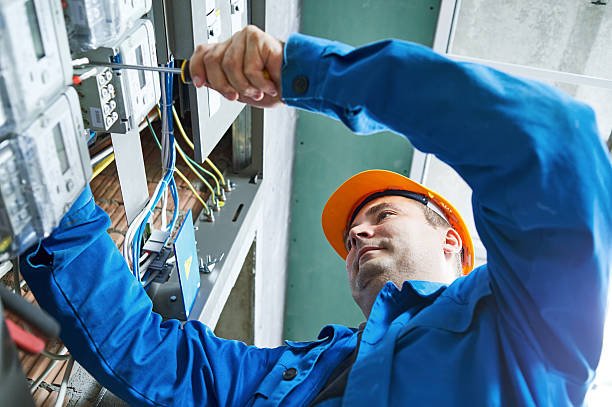Only when faced with it (buying a house, etc.) do you become interested in it, and yet electrical compliance is not to be taken lightly. Although this is a legal requirement, it is also a security issue. Here’s what you need to know.
What is Electrical Compliance?
Bringing your electrical installation into compliance consists of checking that an installation complies with the standards in force, and if necessary, modifying it so that it meets current regulations.
What does Belgian law say on the subject?
In Belgium, it is the RGIE (General Regulations on Electrical Installations) that standardizes domestic and industrial installations and determines the mandatory controls.
Compulsory checks? Yes. But beyond the legal aspect, it is also crucial from a security point of view. Faults in an electrical installation can cause fire and accidents such as electrocution.
The question is to determine when and in which cases, it is necessary to carry out a control?
- When buying a property that is no longer up to standard. The seller is actually required to provide the buyer with a certificate from an approved inspection body. This certificate or certificate of electrical conformity indicates whether or not the property is compliant and, if necessary, specifies the offenses to be rectified. Without this inspection certificate, the sale of the building cannot take place. If there are indeed violations, the buyer then has 18 months from the purchase of the property to bring his electrical installation up to standard, at his own expense. [This rule is valid for any sale of buildings dating from before October 1, 1981, since July 1, 2008].
- An overhaul of the installation is compulsory every 25 years for standard dwellings and every 5 years for apartment buildings, and this even without modifying the electrical diagram or the devices.
- In the event that you carry out work to reinforce the electrical power of the connection.
- This is mandatory when you make a major modification or an extension to your existing electrical installation (not if you change a socket, but if you replace your electrical panel, for example).
- When finalizing a new electrical installation before connecting to the network.
- Before commissioning solar panels (to check if the start-up of the panels is safe).
- After a disaster (fire, flood, etc.) to be able to reopen the sealed meters at the request of the intervention services.
In fact, what procedure for compliance?
- The first step is to contact an approved inspection body that will issue an inspection certificate (in the event that the electrical installation is not in order during the inspection). But even before carrying out this work, the organization will ask for several essential documents:
- The single-line diagram of the installation: this is a diagram that represents the elementary circuits, their interconnections, and the electrical equipment forming the electrical installation. You do not have any? You can have an electrician do it for you. Example of a one-line diagram
- The position diagram of the various elements of the installation. You can also ask an electrician. Example of position plan
- The EAN code (18 digits) identifies the connection of your electrical installation.
- Once the inspection certificate has been received, the owner is required to remedy the non-conformities and contact an approved electrician who can carry out the necessary work.
- After completion of the work, the inspection body must be contacted again in order to validate the compliance of the electrical installation.
- If everything is in order, a certificate of conformity with a validity of 25 years is issued.
Visit also: electrical certificate London
How much does it cost?
It all depends on the age of your installation and the extent of the work to be. Done. In general, the complete renovation of the electrical installation of a single-family house can cost between 6000€ and 7000€.
If it is only a slight update, the cost will often be less than 1,000€.
After the works, you also have to count a flat rate of 150€ for the passage of the inspection body of your electrical installation.
And the control of gas installations?
Yes, compliance does not only affect electrical installations. Gas installations are also checked, for example when a new meter is opened.
When to contact a control body?
- When setting up a new interior installation.
- And when installing a new boiler.
- On the occasion of a maintenance visit (compulsory every 3 years in Brussels).
- When the boiler is more than 15 years old.
- During the 1 st first filling of the tank (for propane installations).


